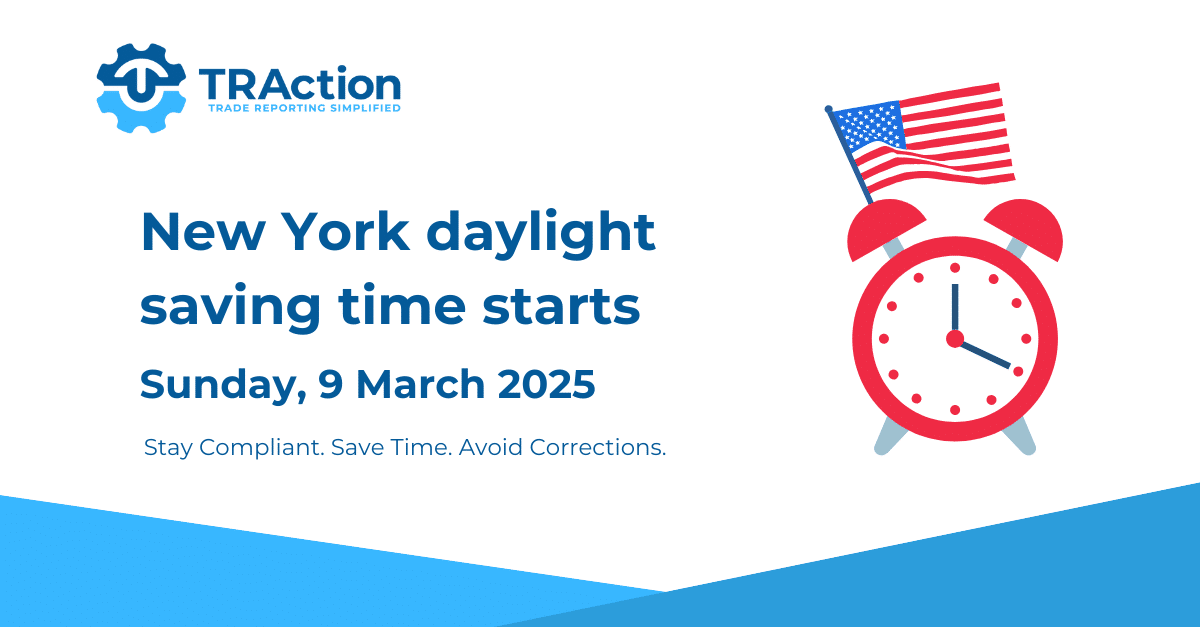Canada Reporting Simplified
Canada Reporting
Derivative trade reporting in Canada is a single-sided reporting regime that requires over-the-counter (OTC) derivatives across all asset classes to be reported. The derivatives reporting regulation applies to all ten provinces in Canada. The regulations in each province have been adapted due to the differences in securities laws them.
Canada Rewrite
25 July 2025
Canada Rewrite rules commenced on 25 July 2025 (Go Live). The intent of the regulatory updates is to harmonise the Canadian regulations with other global trade reporting regimes, to have improved data quality, transparency and standards – this has resulted in major changes being introduced.
For more information, check out our article that highlights the top 6 changes you need to know:
What is the reporting obligation?
The reporting regulation requires all derivatives transactions involving a local counterparty to be reported to a designated trade repository (TR) or to the Commission. As Canadian reporting is unilateral, the Trade Repositories and Derivatives Data Reporting Rule (TR Rule) outlines a hierarchy for determining which counterparty will be required to report a transaction based on the counterparty to the transaction which is best suited to fulfil the reporting obligation.

Who needs to report?
Any derivatives transactions involving one or more local counterparties must be reported to a TR. The counterparty responsible for reporting is as follows:
(a) if the derivatives transaction is cleared through a ‘reporting clearing agency’, the reporting clearing agency will be the sole reporting counterparty;
(b) otherwise, if the derivatives transaction is between a derivatives dealer and a counterparty that is not a derivatives dealer, the derivatives dealer will be the sole reporting counterparty;
(c) otherwise, if the counterparties have, at the time of the transaction, agreed in writing that one of them will be the reporting counterparty, the counterparty determined to be the reporting counterparty under the terms of the agreement will be the sole reporting counterparty; and
(d) in any other case, both counterparties to the transaction will be the reporting counterparties. The inclusion of a reporting hierarchy is intended to ensure that reporting is carried out by the counterparty who will be most capable of, and least burdened by, the requirement to report.
The TR Rules reporting hierarchy ensure that reporting is carried out by the counterparty who will be most capable of, and least burdened by, the requirement to report.
Stay in the know
Sign up to TRAction's newsletter
What to report and to whom?
The TR Rules require three main types of trade data to be reported:
Creation data
Including specific terms relating to the derivative
Life-cycle event data
Including any change to derivatives data previously reported
Valuation data
Including the current value of the transaction
Appendix A to the TR Rules provides specific details on the data fields that a reporting counterparty must report.
All Canadian OTC derivatives trades are to be reported to a recognised TR.
When do reports have to be made?
Reporting must be completed no later than the end of the next business day following the day that the transaction was entered into.
Are you exempt from trade reporting obligations?
The TR Rule provides certain exclusions from the requirement to report derivatives data. These are:
- an exclusion for a local counterparty that has not had, in the preceding twelve months, an aggregate month-end gross notional amount under commodity-based derivatives exceeding $250,000,000;
- an exclusion from the requirement to report a derivative between a non-resident derivatives dealer and another non-resident counterparty where the derivative is reported in a jurisdiction solely because one or both counterparties is a non-resident derivatives dealer in that jurisdiction; and
- an exclusion from the requirement to report a derivative between a government of a local jurisdiction and a crown corporation or agency that is consolidated with the government for accounting purposes.
What is a local counterparty?
A local counterparty is defined by the TR Rule as a counterparty that has either:
- organised under the laws of the jurisdiction;
- has its head office or principal place of business in the jurisdictions; or
- is an affiliate of a counterparty referred to in (a) or (b) and is liable for all or substantially all of the liabilities of the counterparty.
TRAction can provide you with delegated reporting solutions in accordance with the reporting requirements outlined above. We help you understand your Canada trade reporting obligations and simplify your reporting process.
If you want to learn about our services, please get in touch with us.
Wondering how much we charge? View our pricing schedules.
Canada Rewrite
video
Canada Rewrite: Top 6 Changes You Need To Know
The Canada Rewrite rules commence on 25 July 2025. These updates introduce major changes to trade reporting obligations, including new identifiers and data fields, alignment across provinces, extended deadlines, expanded position reporting, stricter error requirements, and a porting process.
Learn more about these important changes your firm needs to prepare for, with the key points covered in this video.
Pricing packages
How much does it cost?
We charge a combination of an account management fee and a cost per transaction/position. Contact us for a quote, or view our pricing page for more information.
Canada Reporting Standard
Annual Account Management Fee
-
$0 Initial set up cost
-
From $0.50 Transaction price
Canada Reporting Delegated
Monthly Account Management Fee
-
$0 Initial set up cost
-
$5.00 Cost of each transaction or position uploaded in a month
Can't find the answers
you're looking for?
Get in touch with us for assistance.



